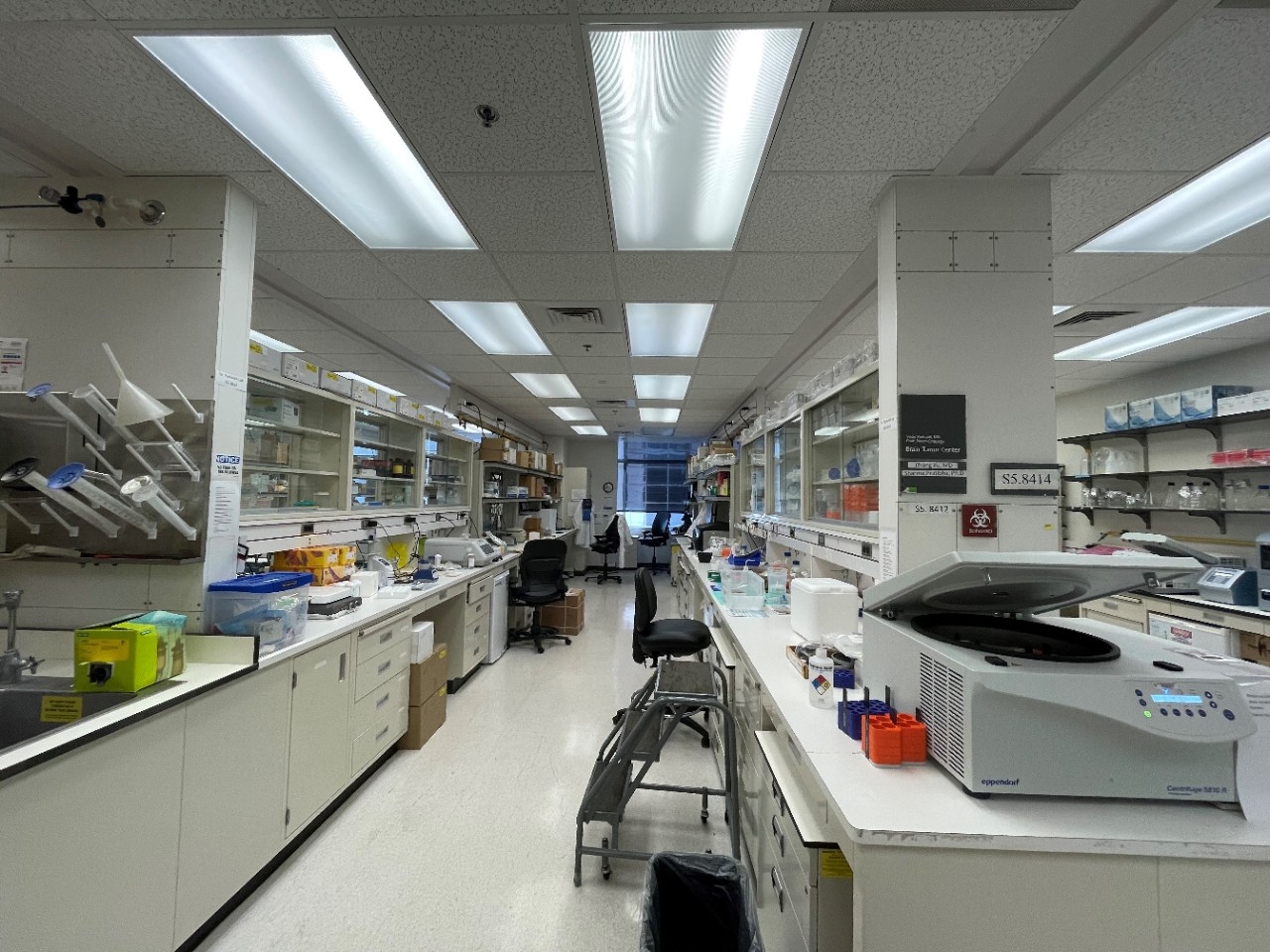
Neuro-Oncology
Vinay Puduvalli, M.D.
Chairman
- Departments, Labs and Institutes
- Departments and Divisions
- Neuro-Oncology
Welcome to the Neuro-Oncology Department at the nation’s #1 cancer center, where our commitment to exemplary patient care, esteemed faculty, innovative clinical trials, and competitive research initiatives are part of MD Anderson’s goal to EndCancer. We offer exceptional fellowship programs and actively engage in annual scientific meetings and community events to promote education, awareness and collaboration within the field.
Welcome to the Neuro-Oncology Department at the nation’s #1 cancer center, where our commitment to exemplary patient care, esteemed faculty, innovative clinical trials, and competitive research initiatives are part of MD Anderson’s goal to EndCancer. We offer exceptional fellowship programs and actively engage in annual scientific meetings and community events to promote education, awareness and collaboration within the field.

Our team is internationally known for their experience and expertise in caring for patients diagnosed with a wide range of nervous system tumors, such as gliomas (glioblastoma, astrocytoma, oligodendroglioma, brainstem and spinal cord glioma, ependymoma), meningioma, medulloblastoma, vestibular schwannoma, nervous system lymphoma, metastatic disease to the brain and spine, as well as primary spinal cord tumors. They also provide outstanding care for patients who experience neurological complications of cancer and its treatments.
Our neuro-oncology doctors and clinical providers work closely with experts in neurosurgery, radiation oncology, neuropathology, and neuroradiology to deliver fully integrated, comprehensive and individualized care for our patients. Through this multidisciplinary approach, we combine clinical excellence with innovation—pioneering new treatments, advancing novel drug therapies, and translating scientific discovery into better outcomes. Beyond treatment, we are committed to patient education and support, ensuring that every patient and family has the knowledge, resources, and guidance needed throughout their journey.
We are changing the landscape of brain tumor treatment and neurological care for cancer patients through breakthrough science, clinical excellence, and unwavering compassion.
Vinay Puduvalli, M.D.
Chair and Professor, Neuro-Oncology department
Clinical Activities (Fiscal Year 2023)
8,535
Established Outpatients
6,029
Inpatient Services
1,379
New Patients
We are Recruiting!
Full-Time Clinical Faculty Positions Open
Our world-renowned physicians have a multidisciplinary approach to cancer care and provide exceptional treatment plans for patients. Join our outstanding faculty leaders in the fight to #EndCancer!
Spotlight on Neuro-Oncology
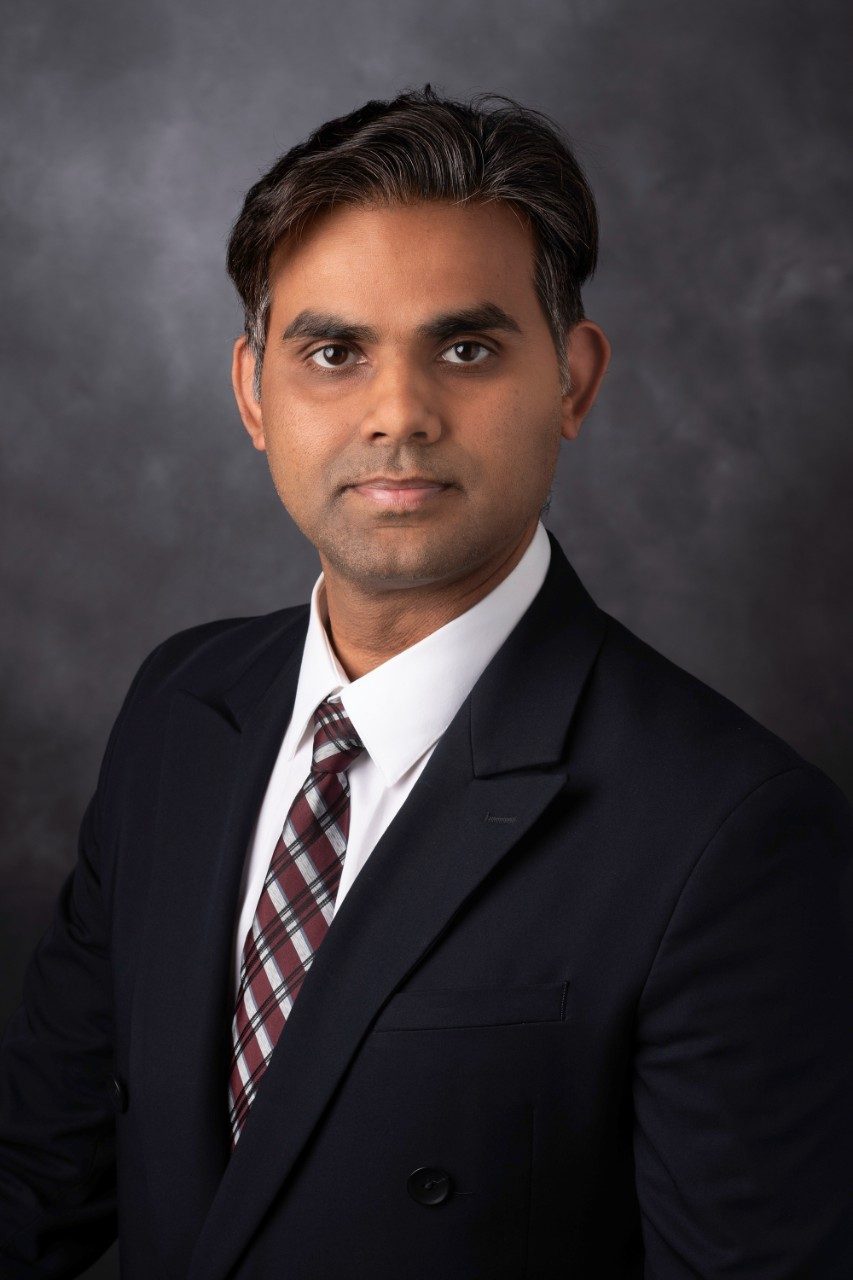
Prashant Rai, M.D., joined the department as an Assistant Professor.
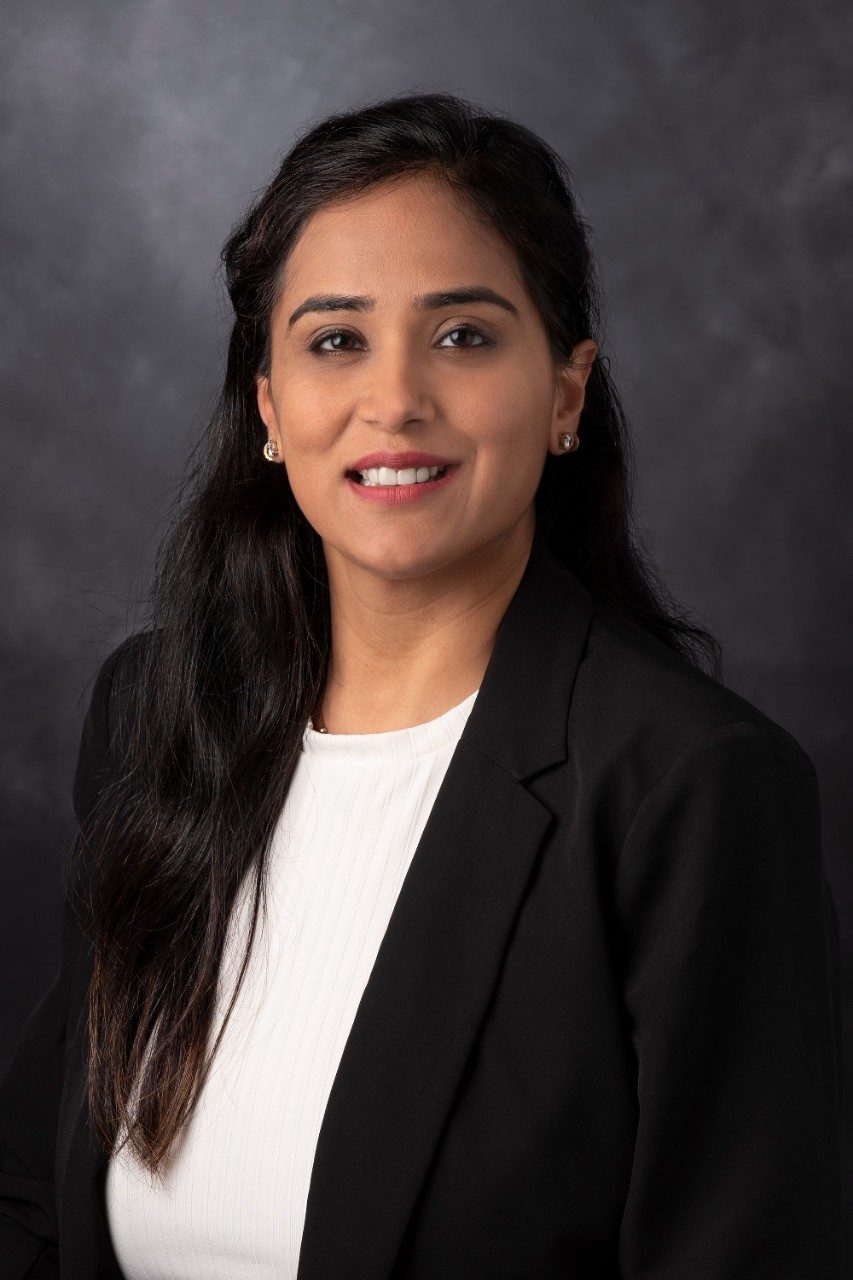
Bhanu Gogia, M.D., joined the department as an Assistant Professor.
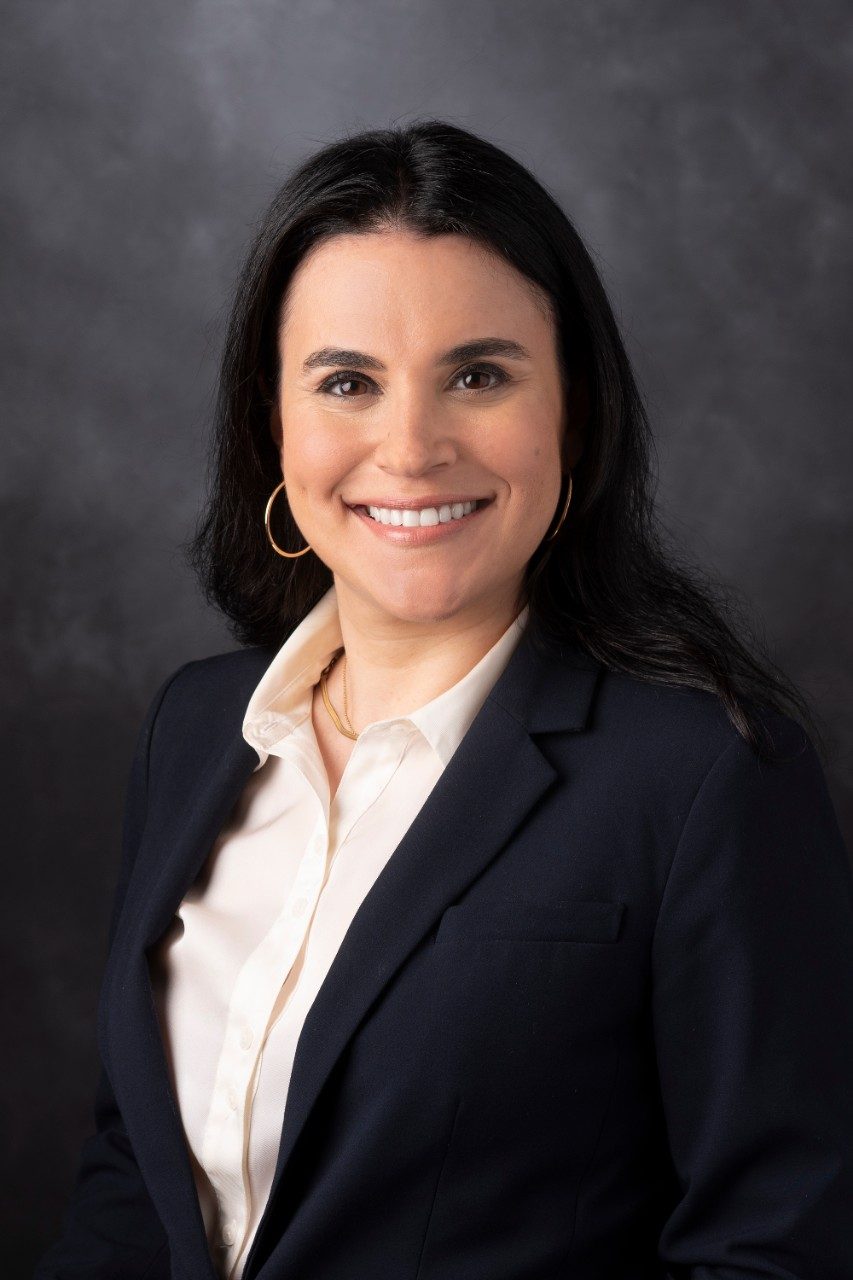
Gabriela Tantillo Sepúlveda, M.D., MPH, joined the department as an Assistant Professor.
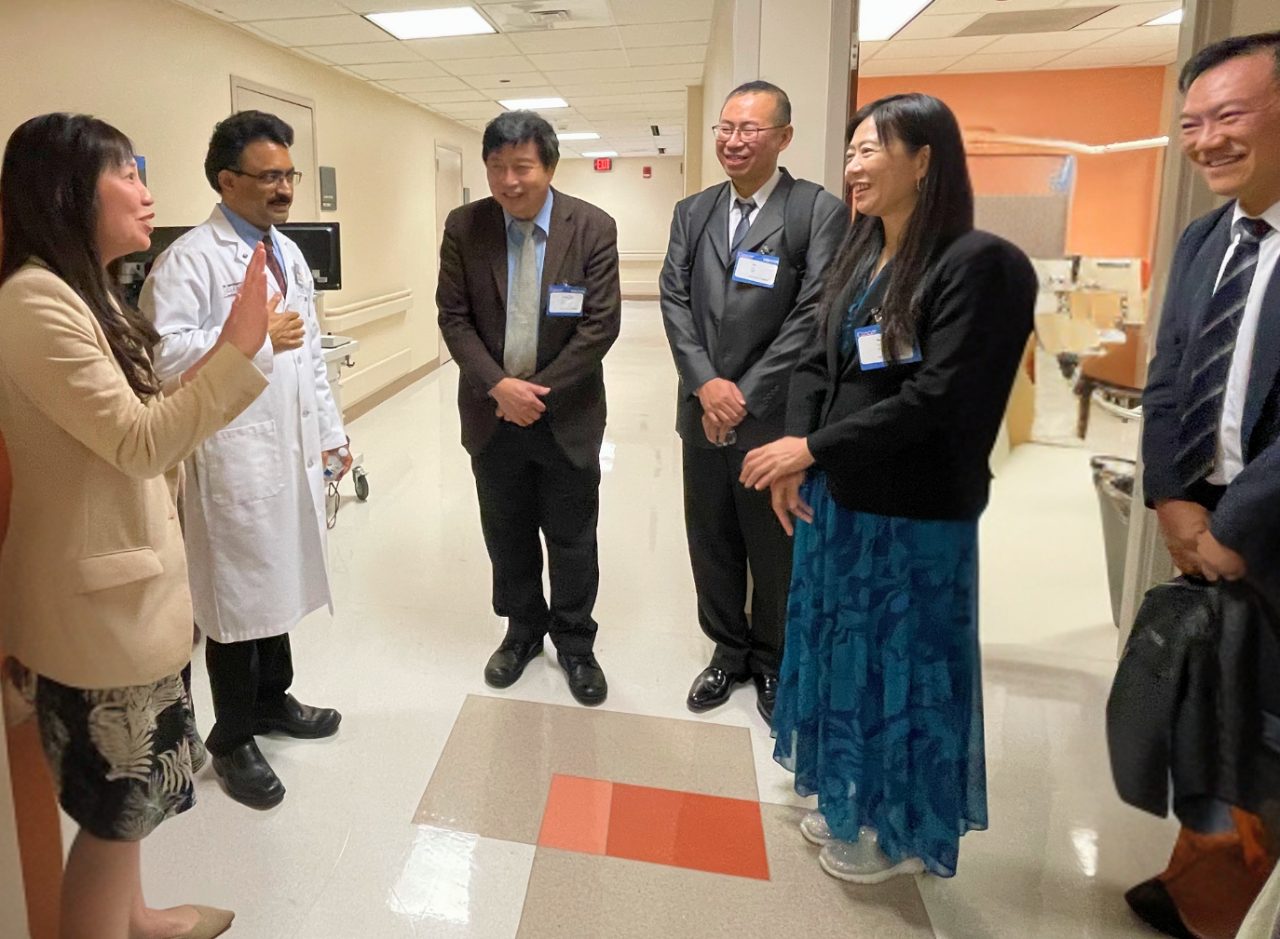
Dr. Weathers, Clinical Medical Director, Brain & Spine Center, shares insights with a visiting delegation.
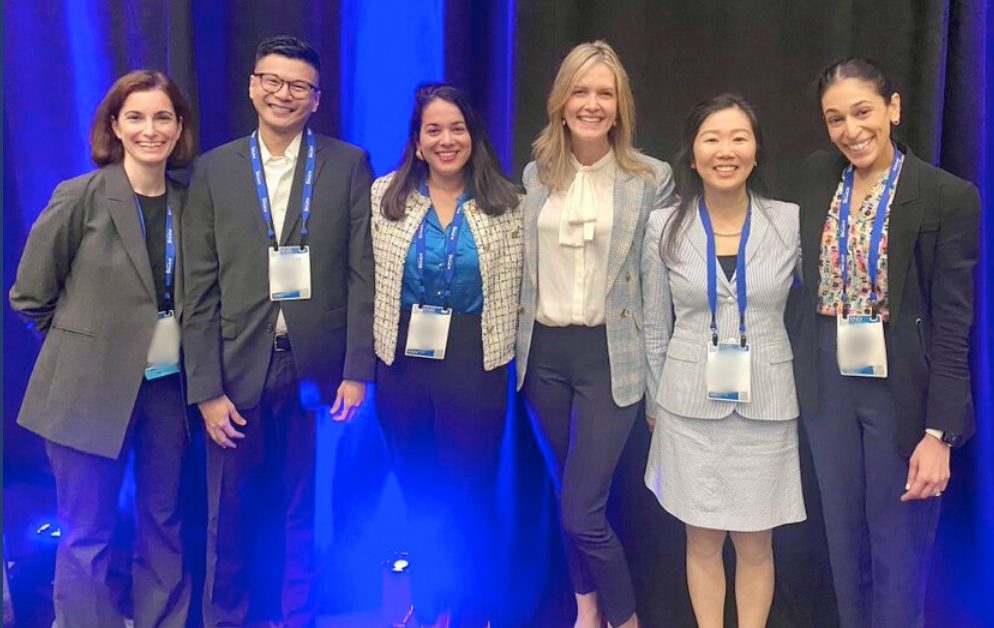
Dr. O'Brien, director of the Brain Metastases and Leptomeningeal Disease Program, presented and moderated SNO sessions on LMD.
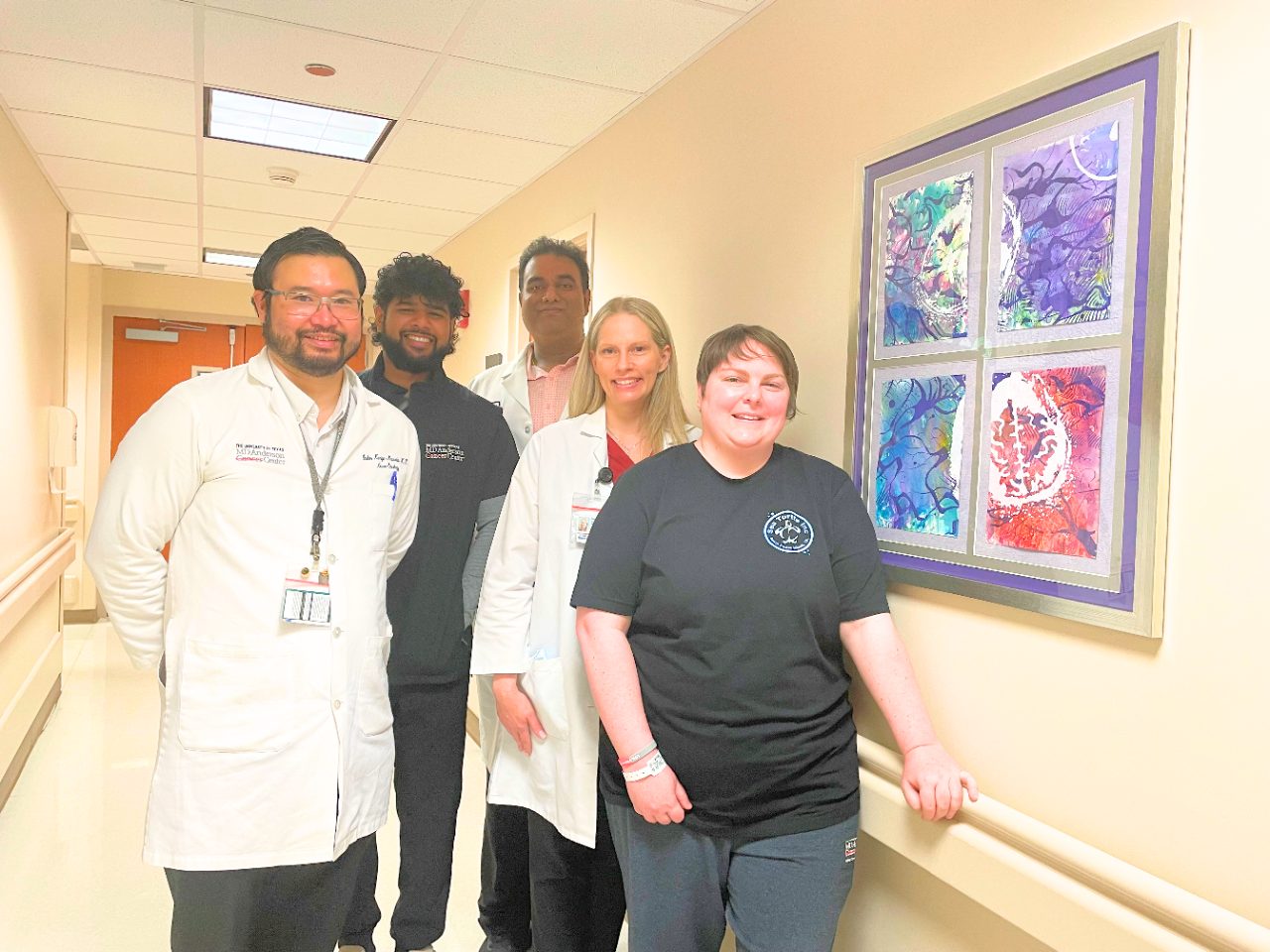
Dr. Kamiya Matsuoka, Dr. Dasgupta, APRN Stephanie Knight and Asst. Nurse Mgr. Alvin John with patient Kellilyn Monar and her MRI art in the clinic.
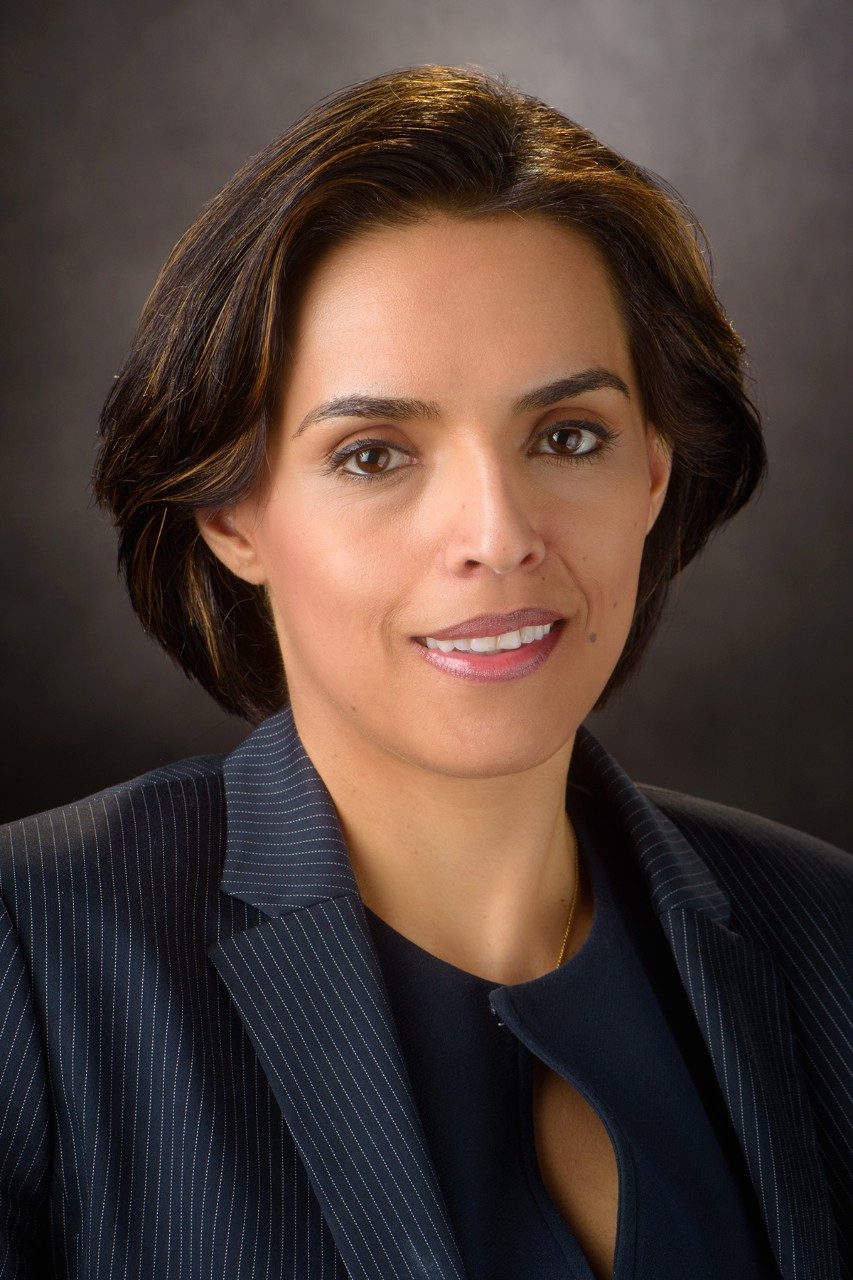
Dr. Majd, associate director of clinical research and co-leader of the BTC Priority Objective 3, was promoted to associate professor.
Meet one of our patients
Glioblastoma survivor: ‘MD Anderson is a blessing’
When it comes to his glioblastoma diagnosis, Chris Cook is inspired by his faith, his family and his doctors at MD Anderson.
Post-holiday run leads to glioblastoma diagnosis
On Dec. 26, 2022, Chris was relaxing at home in Holland, Michigan. When his then-fiancée, Essie, left for work, Chris went on a six-mile training run with his German Shepherd, Sully.
“Around mile four, I got this metal taste in my mouth. I thought it was because of old cavities,” Chris recalls. “By mile five, I was feeling nauseous. I was starting to see white and felt my body going down.”
Chris awoke to police officers, bystanders and Sully. He was alert but could not speak. Paramedics took him to a hospital where doctors administered tests and a CT scan. “Everything was clear, I was able to speak with the doctors, and the hospital sent me home,” says Chris.
Weeks later, Chris received a letter from the State of Michigan, documenting his case as a “possible seizure.” He would need a doctor’s note clearing him to drive or to wait six months before driving again. Chris’ primary care doctor recommended that he see a neurologist.
“Things got a little more concerning when I saw the neurologist because my non-contrast CT scan showed a mass,” he says. Chris and his family immediately began searching to find the best cancer hospital when they learned he had a brain tumor. “Our research kept showing that MD Anderson was No. 1.”
Putting his trust in his MD Anderson care team
Chris first came to MD Anderson in February 2023. He met with neurosurgeon Sherise Ferguson, M.D., and neuro-oncologist Ashley Aaroe, M.D.
“Dr. Ferguson explained all aspects of the surgery, including risks to mobility connected with operating near the right vessel,” Chris says. “She discussed her plan to get around that vessel and jumped into this whirlwind, literally fighting with me.”
Reflecting on his meeting with Aaroe, Chris says, “I couldn’t have asked for a better head coach in this tough battle. She went above and beyond in answering my questions and in making sure I was able to digest the details about chemotherapy, radiation and medication.”
Leading up to surgery, Chris thought about the meetings with his doctors. “I remember asking Dr. Ferguson, ‘Looking back on your life, is this something you always wanted to do?’ She responded, ‘When I was a little girl, the only other thing I wanted to be was a ninja.’”
Chris’ brain tumor treatment
In February, Dr. Ferguson removed a 1.54-centimeter tumor in Chris’ brain. The operation involved the right middle cerebral artery and lasted more than 9 hours. “My ninja did a great job,” says Chris. “Our lives collided for her to save mine. As a surgeon, she didn’t just become a ninja; she became a samurai. And instead of a sword, she has a scalpel and knows how to operate with the best of them.”
Four weeks after surgery, Chris started 42 days of chemotherapy followed by six weeks of radiation therapy. A month after that, he started interval chemotherapy.
Aaroe manages Chris’ treatment plan. “We have a true partnership,” says Chris. “She keeps expectations real, keeps me centered about the medication I’m taking, and does a great job of coaching me.”
Chris travels to MD Anderson every other month for an MRI and a checkup with Dr. Aaroe’s team. In the non-MRI months, Chris sees doctors in Michigan for blood work and chemotherapy release-to-start sequence. His MD Anderson team collaborates with his local care team as needed.
Thankful for his MD Anderson care team
Chris says he received the same level of exceptional care from other MD Anderson specialists, such as radiation oncologist Subha Perni, M.D., and her team of nurses, as he did from Aaroe and Ferguson.
“It’s humbling how these professionals are so compassionate and genuinely care for me,” says Chris, calling MD Anderson a blessing. “Everyone who is going through cancer hopes that miracles are true. I met an entire team of miracles with my doctors, nurses and dietitians.”
Chris adds that MD Anderson did more than save his life. “The success of my surgery made it possible for me and Essie to get married on Sept. 30, 2023,” he says. “Everyone talks about bucket lists. Mine is all about the people who matter in my life and letting them know how amazing they are to me.”
Request an appointment at MD Anderson online or call 1-877-632-6789.

Fellowship Programs
Neuro-Oncology Fellowship

The Neuro-Oncology Fellowship program provides intense, comprehensive training in the management of primary brain tumors and neurological complications of cancer. Our overall goal is to cultivate the careers of young physician-scientists to become leaders in the field of neuro-oncology.
The two-year fellowship program is carefully, but flexibly designed to accommodate the individual needs of candidates aiming at either clinical practice or academic positions upon completion of training.
Neuropsychology Fellowship

The MD Anderson postdoctoral fellowship in clinical neuropsychology is a structured two-year fellowship which provides competency-based postdoctoral training in clinical neuropsychology appropriate for those seeking to pursue ABPP Board specialization in Clinical Neuropsychology. The Fellowship is accredited by the Association of Postdoctoral Programs in Clinical Neuropsychology (APPCN). As a member of APPCN, selection of candidates is conducted through the National Match hosted by NMS.
Related Resources
Contact Us
The Neuro-Oncology academic offices are located in the John Mendelsohn Faculty Center, Floor 7. Get customized directions using our Access system.
Phone: 713-792-2883
Fax: 713-794-4999
For clinical requests, including appointments, questions about your care and prescription refills, please contact the Brain and Spine Center or visit MyChart.
Physical Address:
1400 Holcombe Blvd.
Room FC7.3000, Unit 431
Houston, TX 77030
Mailing Address:
The University of Texas MD Anderson Cancer Center
Department of Neuro-Oncology
P.O. Box 301402
Houston, TX 77230-1402
